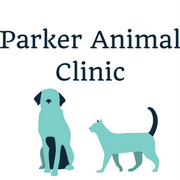
Maintaining pet health starts as soon as you get a new puppy. Young dogs require different care than older canines, so it’s essential to learn what to expect before getting a new furry pal. Here is a guide on puppy care for your family.
Puppy Care 101
Vaccines
Puppies should get several rounds of preventative shots during their first year:
- Bordetella Bronchiseptica – kennel cough (6-8 weeks)
- Canine Distemper – a virus that affects the nervous, gastrointestinal and respiratory system (6-8 weeks)
- Canine Hepatitis – liver disease (10-12 weeks)
- Coronavirus – a stomach virus that may also impact the respiratory system (10-12 weeks)
- Canine Parainfluenza – kennel cough (10-12 weeks)
- Leptospirosis – a bacterial disease that can cause fever, diarrhea, loss of appetite and lethargy (10-12 weeks)
- Parvovirus – a gastrointestinal virus (10-12 weeks)
- Rabies – a viral disease that affects the nervous system (12-24 weeks)
After these initial vaccinations, puppies may need booster vaccines to add a second dose to the original shot to improve effectiveness. Ask a pet health professional about which vaccines require this second appointment.
Nutrition
 Puppies grow quickly and require enough calories, vitamins, and minerals to keep them healthy and active. Between 6 and 12 weeks, feed them special puppy food that features protein and fat.
Puppies grow quickly and require enough calories, vitamins, and minerals to keep them healthy and active. Between 6 and 12 weeks, feed them special puppy food that features protein and fat.
They'll also offer macrominerals such as calcium, chloride, magnesium, potassium, and phosphorous to foster bone growth, healthy teeth, and good eyesight. You may need to feed the pup small amounts several times a day to replace the calories they’re losing by digesting, growing, and playing.
As they age to 3 to 6 months, puppies will need less food. Offer them one less meal a day based on your veterinarian's recommendations. Between 6 and 12 months, many people cut back to twice-daily feedings with adult dog food. These varieties have low-fat content and plenty of fiber for healthy digestion. Maintain optimal pet health after age one by serving half-portions of adult food twice a day.
If your pup experiences any symptoms of food allergies like diarrhea, itchy skin, hives, or vomiting, work with your vet to try an elimination diet and establish what ingredients are troublesome. They’ll help you find foods that don’t feature the allergens.
New pet owners looking for a vet they can trust should contact Parker Animal Clinic in Johnson County, AR, to learn about their early vaccinations. The Main St. practice has been in business for over 18 years, offering preventative check-ups, treating illnesses and injuries. Call the Clarksville-area pet health experts at (479) 754-5656 or visit the website for information on their discounted prices on pet medicine and specialty foods.
About the Business
Have a question? Ask the experts!
Send your question

